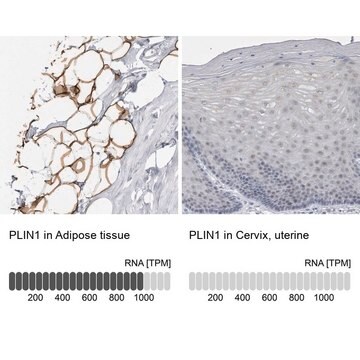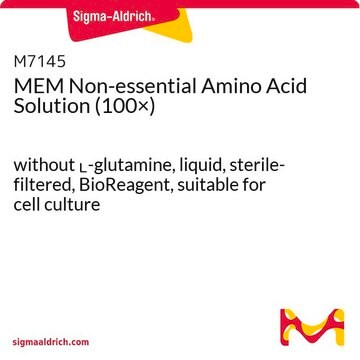詳細
We are committed to bringing you greener alternative products, which adhere to one or more of The 12 Principles of Green Chemistry.This antibody is Preservative-free, produced without the harm or sacrifice of animals and exceptionally stable to allow for ambient shipping and storage if needed and thus aligns with "Waste Prevention", "Designing Safer Chemicals" and "Design for Energy Efficiency".
Click here for more information.
ZooMAb® antibodies represent an entirely new generation of recombinant monoclonal antibodies.Each ZooMAb® antibody is manufactured using our proprietary recombinant expression system, purified to homogeneity, and precisely dispensed to produce robust and highly reproducible lot-to-lot consistency. Only top-performing clones are released for use by researchers. Each antibody is validated for high specificity and affinity across multiple applications, including its most commonly used application. ZooMAb® antibodies are reliably available and ready to ship when you need them.
特異性
Clone 1J20 is a ZooMAb® Rabbit recombinant monoclonal antibody that specifically detects Fatty acid-binding protein 4 (FABP4). It targets an epitope within 20 amino acids from the C-terminal half.
免疫原
KLH-conjugated linear peptide corresponding to 20 amino acids from the C-terminal half of human Fatty acid-binding protein 4 (FABP4).
アプリケーション
Quality Control Testing
Evaluated by Western Blotting in Mouse heart tissue lysate.
Western Blotting Analysis: A 1:1,000 dilution of this antibody detected FABP4 in Mouse heart tissue lysate.
Tested applications
Western Blotting Analysis: A 1:1000 Dilution from a representative lot detected FABP4 in lysates from Human heart tissue and SH-SY5Y cells.
Immunocytochemistry Analysis: A 1:100 dilution from a representative lot detected FABP4 in SH-SY5Y cells.
Affinity Binding Assay: A representative lot of this antibody bound FABP4 with a KD of 3.8 x 10-9 in an affinity binding assay.
Immunohistochemistry (Paraffin) Analysis: A 1:100 dilution from a representative lot detected FABP4 in human breast tissue sections.
Note: Actual optimal working dilutions must be determined by end user as specimens, and experimental conditions may vary with the end user
Evaluated by Western Blotting in Mouse heart tissue lysate.
Western Blotting Analysis: A 1:1,000 dilution of this antibody detected FABP4 in Mouse heart tissue lysate.
ターゲットの説明
Fatty acid-binding protein, adipocyte (UniProt: P15090; also known as Adipocyte lipid-binding protein, ALBP, Adipocyte-type fatty acid-binding protein, A-FABP, AFABP, Fatty acid-binding protein 4) is encoded by the FABP4 gene (Gene ID: 2167) in human. FABPs are a family of proteins that function as intracellular lipid chaperones and regulate lipid trafficking and responses in cells. They can reversibly bind to hydrophobic ligands, such as saturated and unsaturated long-chain fatty acids (FAs), eicosanoids, and other lipids, with high affinity and broad selectivity. FABP4 binds both long chain fatty acids and retinoic acid and delivers them to their cognate receptors in the nucleus. Its fatty acid binding sequence is localized to amino acids 127-129 and its nuclear localization signal resides in amino acids 27-32. FABP4 is mainly expressed in adipocytes, however, smaller amounts may also be found in macrophages. In adipocytes its levels are found to be about 10,000-fold higher than in macrophages. It is released from adipocytes in a non-classical pathway associated with lipolysis, possibly acting as an adipokine. Elevated levels of FABP4 have been linked to development of obesity, insulin resistance, diabetes mellitus, hypertension, and atherosclerosis. FABP4-deficient mice display increased body weight but reduced insulin resistance in both high-fat diet-induced and genetic obesity mouse models. Expression of FABP4 is reported to be high during adipocyte differentiation and is transcriptionally controlled by peroxisome proliferator-activated receptor (PPAR) agonists. This ZooMAbZooMAb® recombinant monoclonal antibody, generated by our propriety technology, offers significantly enhanced specificity, affinity, reproducibility, and stability over conventional monoclonals. (Ref.: Furuhashi, M., et al. (2014). Clin. Med. Insights Cardiol. 8(Suppl 3); : 23-33).
物理的形状
Purified recombinant rabbit monoclonal antibody IgG, lyophilized in PBS with 5% Trehalose, normal appearance a coarse or translucent resin. The PBS/trehalose components in the ZooMAb formulation can have the appearance of a semi-solid (bead like gel) after lyophilization. This is a normal phenomenon. Please follow the recommended reconstitution procedure in the data sheet to dissolve the semi-solid, bead-like, gel-appearing material. The resulting antibody solution is completely stable and functional as proven by full functional testing. Contains no biocide or preservatives, such as azide, or any animal by-products. Larger pack sizes provided as multiples of 25 μL.
再構成
300 μg/mL after reconstitution at 25 μL per vial. Please refer to guidance on suggested starting dilutions and/or titers per application and sample type.
保管および安定性
Recommend storage of lyophilized product at 2-8°C; Before reconstitution, micro-centrifuge vials briefly to spin down material to bottom of the vial; Reconstitute each vial by adding 25 μL of filtered lab grade water or PBS; Reconstituted antibodies can be stored at 2-8°C, or -20°C for long term storage. Avoid repeated freeze-thaws.
法的情報
ZooMAb is a registered trademark of Merck KGaA, Darmstadt, Germany
免責事項
Unless otherwise stated in our catalog or other company documentation accompanying the product(s), our products are intended for research use only and are not to be used for any other purpose, which includes but is not limited to, unauthorized commercial uses, in vitro diagnostic uses, ex vivo or in vivo therapeutic uses or any type of consumption or application to humans or animals.








